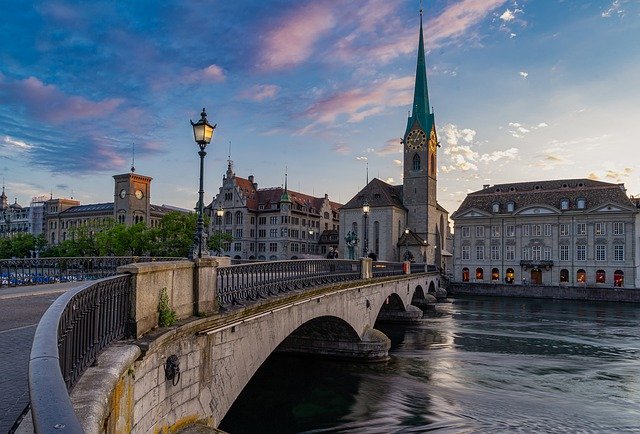- Water tests
- Air quality and pollutants
- Mold analyses
- Asbestos analyses
- Rapid tests
-
Knowledge
- Analysis made easy
- Facts About Drinking Water
- Facts about Indoor Air
- Facts about Mold
- Facts about Asbestos
-
Water quality in Switzerland
- Further current news
- NEWS: Zurich Drinking Water Map
- Water Scarcity and Water Quality
- The Water Supply of the City of Thun
- Drinking Water in St. Gallen
- Drinking Fountains in Switzerland
- Tap Water in Switzerland: Quality and Controls
- Drinking Water in Switzerland
- Water Quality in the Canton of Bern
- Water Quality in the Canton of Geneva
- Water Quality in the Canton of Zurich
- Water Quality in Baden
- Water Quality in Basel
- Water Quality in Bern
- Water Quality in the City of Zurich
- Water Analysis in Lucerne
- Water Quality in Winterthur
- Initiative for Clean Drinking Water
- Partnership with WATER FOR WATER (WfW)
- Help & Services
 The Soft Water in Zurich
The Soft Water in Zurich
The water in Zurich, also known as "Züriwasser," is sourced approximately 70% from Lake Zurich, about 15% from springs, and the remaining 15% from groundwater. Zurich's water supply not only provides high-quality drinking water to Zurich but also to 67 other municipalities.
The reason most people find Zurich's water very pleasant is due to its low hardness.
The water hardness in Zurich ranges from 14-19°fH or 7-10°dH. The limits for soft water are 8.4°dH or 15°fH. Therefore, the drinking water in Zurich is soft to moderately hard.
These units (°fH = French hardness, °dH = German hardness) refer to the dissolved minerals in the water, particularly the ions of the alkaline earth metals magnesium and calcium. Magnesium and calcium can form poorly soluble compounds, commonly referred to as "lime." The more minerals contained in the water, the "harder" the water.
Water from the Supplier: Top Quality
The overall water quality in Zurich is excellent. This quality of drinking water can only be ensured by frequent checks under strict guidelines. In the field of drinking water controls, the requirements are as strict as for hardly any other food. Almost 5000 water analyses are conducted in Zurich each year. These include microbiological and chemical controls. The microbiological analyses usually show that the water is absolutely safe up to the house connection. This optimal quality is made possible by a modern treatment plant.
Zurich Water – Very Little Nitrate
Chemical analyses show that the nitrate content in drinking water is usually around 10 milligrams per liter. The legal framework considers a maximum nitrate content of 40 milligrams per liter to be harmless, so the legal limit is only used up to 25%. Nitrate is also naturally present in soils, but an increased nitrate content in groundwater indicates significantly increased agricultural use, as nitrate is a component of fertilizers.
Züriwasser – Gentle on the Wallet
On average, mineral water from the supermarket costs about 1000 times more per liter than water drawn fresh from the tap in Zurich. But that's not the only economically significant effect. Due to the low lime content in the water, the consumption of detergents is lower, which in turn saves money. Tap water is also generally much more environmentally friendly. Consequently, using and consuming tap water in Zurich offers long-term advantages over buying bottled water.
Why is a Drinking Water Test Useful?
Although water quality in Switzerland is strictly monitored, contaminants can still enter the water up to the household tap. From the house connection, the homeowner is responsible for maintaining water quality.
Heavy metals, bacterial contamination, or other pollutants are often not visible to the naked eye. Therefore, the best way to get a comprehensive overview of your own water quality is with a professional laboratory analysis of your drinking water.
Here are the reasons why it is worthwhile to conduct a water analysis:
➥ You regularly drink tap water.➥ Your tap water has an unusual taste, smell, or cloudy appearance.
➥ There are people in your household who may be particularly affected by contaminated water, such as babies or pregnant women.
➥ You use your tap water to prepare baby food.
➥ You own a water carbonator for which you use your tap water.
➥ You are unsure of the piping material used in your house and want to rule out contamination from heavy metals.
Further Information:
City of Zurich: Water Supply
